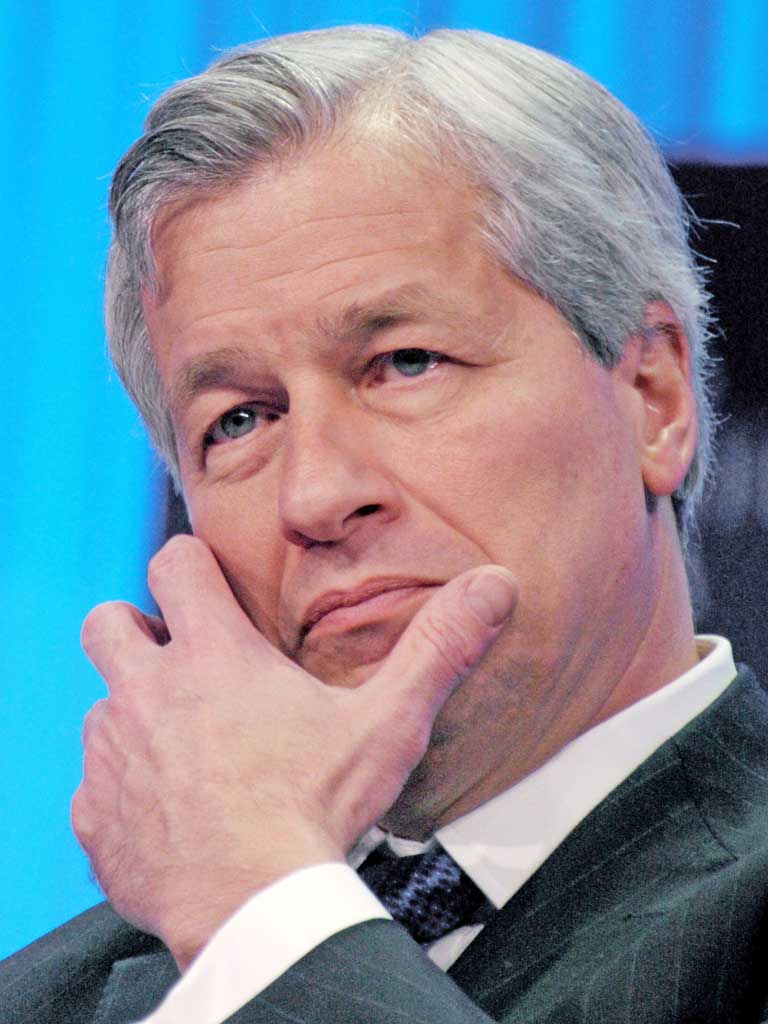Double trouble at JP Morgan: trader's losses could exceed $7bn
US bank has cancelled its plan for a share buyback in the wake of the growing crisis

Your support helps us to tell the story
From reproductive rights to climate change to Big Tech, The Independent is on the ground when the story is developing. Whether it's investigating the financials of Elon Musk's pro-Trump PAC or producing our latest documentary, 'The A Word', which shines a light on the American women fighting for reproductive rights, we know how important it is to parse out the facts from the messaging.
At such a critical moment in US history, we need reporters on the ground. Your donation allows us to keep sending journalists to speak to both sides of the story.
The Independent is trusted by Americans across the entire political spectrum. And unlike many other quality news outlets, we choose not to lock Americans out of our reporting and analysis with paywalls. We believe quality journalism should be available to everyone, paid for by those who can afford it.
Your support makes all the difference.The crisis at JP Morgan escalated yesterday as it emerged its trading losses in London could rise to as much as $7bn (£4.5bn) and the US bank cancelled a share buyback. Fears were growing that the losses could spiral from an initial $2bn, which was declared on 10 May, as JP Morgan struggles to unwind the massive bets made by the so-called "London Whale" trader Bruno Iksil.
In a further blow, chairman and chief executive Jamie Dimon has suspended plans to use the US bank's own funds to buy back $15bn worth of shares. Buybacks are a popular way for firms to use up cash sitting on the balance sheet and prop up the share price.
JP Morgan shares tumbled 82 cents or 2.45 per cent to a new six month-low of $32.67. The bank's value has fallen by a quarter in a year. Mr Dimon insisted that the decision to cancel the buyback was not linked to fears about a possible increase in losses. "You should not interpret this as anything about the size of the loss," he said.
But as doubts persisted that the crisis has not yet abated, speculation was mounting that Mr Dimon could be forced to give up at least one of his dual boardroom roles. He has previously been regarded as the savviest banker on Wall Street as JP Morgan survived the credit crunch without a bailout.
Rival traders reckon that the losses could be as high $7bn. "The markets know pretty much what JP Morgan has and in what sizes," said one trader.
The main index on which Mr Iksil's credit default swaps trades were based has calmed down in recent days, which suggests that JP Morgan has decided to trade out of its positions gradually rather than take one massive hit. Mr Dimon originally said the bank would deal with the positions to "maximise economic value". But there is a danger in taking the long view. Mr Iksil was betting on the credit-worthiness of corporate America and if that starts to fall JP Morgan's losses could mount further.
It also emerged that Ina Drew, the head of the chief investment office where the losses occurred and who quit four days after they were revealed, was out of the office for long periods after she contracted Lyme disease in 2010.
According to JP Morgan traders, in her absence there were regular shouting matches between her subordinates in New York and London. "The strife distracted everyone because no one could push back," one trader told The New York Times. Ms Drew was seen as the key executive alongside Mr Dimon who steered JP Morgan through the 2008-9 financial crisis. But she became more hands off in the past couple of years, traders claimed.
Join our commenting forum
Join thought-provoking conversations, follow other Independent readers and see their replies
Comments